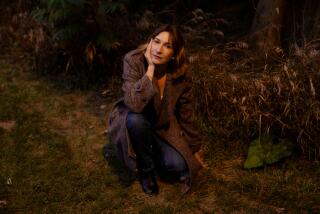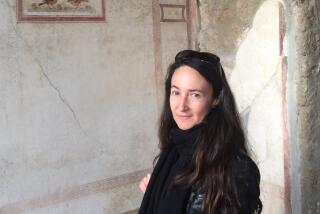THEATER REVIEW / ‘THE HEIDI CHRONICLES’ : Boomer Follies : Wendy Wasserstein’s award-winning look at the ‘Me’ generation has its pitfalls; this successful production avoids them.
- Share via
Taking the timeless author’s dictum “Write what you know” very much to heart, playwright Wendy Wasserstein has built a career documenting the dreams, pursuits and foibles of the “Me” generation.
Clearly she knows them very well. In 1989 “The Heidi Chronicles” earned her the triple crown of dramaturgy--the Tony Award, Pulitzer Prize and Obie awards--for her sometimes humorous, sometimes poignant reflections on those booming babies who opened their eyes in the 60s, spread their wings in the 70s and bumped their heads on the ceilings of the 80s.
And if Wasserstein’s tight focus sometimes falls victim to the same self-absorption she chronicles so effectively, certainly no fault can be found with the accuracy of her observations.
Or with the dramatic execution in director Pope Freeman’s lively and affecting staging of “Heidi” by the Santa Barbara City College Theatre Group. The production deftly sidesteps the many opportunities for simplistic caricature and wrings multiple levels of irony, idealism and disillusionment from Wasserstein’s script.
Boomers everywhere are bound to laugh hysterically--and at times squirm uncomfortably--at the play’s well-paced vignettes spanning the period from a high-school dance in 1965 to a mid-life lovers’ reunion in 1989.
The episodes revolve around Wasserstein’s fictional stand-in, Heidi Holland (Leslie Gangl Howe), an art historian who manages to stay loyal to a few simple but potent humanist principles amid the fashion-plate philosophies adopted and discarded by her friends. Heidi’s life traces a virtual road map of boomer iconography--from Eugene McCarthy rallies to protest marches to encounter groups to power lunches.
Through it all, and sometimes in the face of cynical ridicule, Heidi single-mindedly pursues her decidedly unglamorous passion--studying the role of women in art, implicitly seeking a historical perspective on her own life.
Perfectly cast, Howe projects all the right qualities for Heidi, alternating fierce uncompromising intelligence with self-conscious insecurity. In a script that often relegates Heidi to what she terms “a highly informed spectator,” Howe keeps her from becoming a passive shadow (the trap that sank Amy Irving’s portrayal in the 1990 West Coast premiere) through wry reactions and a sustained playful spin.
She’s at her funniest dealing with the two long-term men in her life. Her close friendship with gay pediatrician Peter Padrone (Aaron Levin) and her intermittent love affair with the arrogant charmer Scoop Rosenbaum (Tony Miratti), a radical editor-lawyer turned publisher of “Boomer” magazine, are splendidly propelled with verbal fireworks that make watching all three actors a delight.
While Howe’s comic timing is well-suited to the snappy cadences of Wasserstein’s East Coast intellectual banter, she also reveals the inner turmoil wrought by a lifestyle choice that breaks with convention. Especially powerful is Heidi’s painful breakdown while addressing a luncheon on the topic of “Women, Where are We Going?”
“I feel stranded,” she admits at last. “And I thought the whole point was that we were all in this together.”
For all its insights, however, “Heidi” never transcends its protagonists’ complacent faith in the absolute uniqueness of their experiences. The absence of parents (even by reference) is particularly telling.
In the beginning, Wasserstein seems to be saying, was the boomer.
Perched in a limbo outside of family history, Heidi’s ultimate solution to her isolation smacks of the quick fix mentality bred by supermarkets and microwave ovens.
Overly precious and self-important to be sure, “Heidi,” even in its limitations, remains an accurate portrait of its generation.
* WHERE AND WHEN
“The Heidi Chronicles,” Performed through March 20, Thursdays and Fridays at 8 p.m. and Sundays at 2 p.m. at the Garvin Theatre, 721 Cliff Drive in Santa Barbara. Tickets are $14 and $12. Running time is 2 hours, 50 minutes. For reservations or further information, call 965-5935.
More to Read
The biggest entertainment stories
Get our big stories about Hollywood, film, television, music, arts, culture and more right in your inbox as soon as they publish.
You may occasionally receive promotional content from the Los Angeles Times.










